|
There are few religious images that hold more significance for me than that of the Sacred Heart of Jesus. My grandmother, a pillar of faith in our Mexican-American family, kept a framed copy of the image in her bedroom, adorned with numerous prayer cards, mementos, and old palm branches. For a young child walking by the door, that image seemed both mysterious and comforting. What was it actually depicting and why should it be a focus of such devotion? Who was this Jesus who stared out at me, gesturing to the flaming heart in his chest, poised as if to offer it out through the frame of the picture? Only years later would the full meaning of the image become apparent, as I learned more about the history of Christianity and the fundamental meaning of the Incarnation. Devotion to the Sacred Heart of Jesus, which developed particularly in 17th century France from earlier medieval devotions to Christ, is about much more than the image itself. Given particular shape by the writings and experiences of figures such as St. John Eudes and St. Margaret Mary Alacoque, the devotion is a way of contemplating more deeply the mystery of God’s love for humanity expressed in the true human existence of the Son of God as the Incarnate Word. Ultimately, the image and devotion remind us that the God we confess as Christians is not a powerful yet distant God. Rather, the God who so loved the world (Jn 3:16) loved us in such a way that he truly entered into human life, becoming a human being not merely in appearance but complete with body and soul, mind and heart. In a certain way, the devotion trains our minds to resist passing over the Incarnation as simply a well-worn article of doctrine, affirmed as a matter of course but rarely considered more closely for its radical implications. Christianity is not ultimately a belief in formulas but rather an encounter with God in faith expressed, preserved, and remembered authentically through such fundamental doctrines as the Incarnation (cf. Catechism of the Catholic Church §170). As Pope Benedict XVI wrote so beautifully in his first encyclical, Deus Caritas Est, “being Christian is not the result of an ethical choice or a lofty idea, but the encounter with an event, a person, which gives life a new horizon and a decisive direction” (Deus Caritas Est, §1). The devotion to the Sacred Heart, and the strikingly concrete image of a human heart, presents this encounter in high relief. Jesus Christ is much more than a moral teacher or religious sage. He is much more than a simple mode of communication between God and human beings, or a courier of divine knowledge and commandments. He is, instead, the Good Shepherd who has come to us, whose heart is moved with pity. He is the Bridegroom who has loved us with a human heart and given himself completely for us. He is the God who is Love (1 Jn 4:8), who unites to himself a human heart in the Incarnation and transfigures it with the fire of divine love as the heart of the Incarnate God. This good (and truly astounding) news is depicted in the gaze and kindled heart, the crown of thorns and the cross, of the image of Jesus that hung in my grandmother’s bedroom. The image and devotion, so widespread now as to feel fundamentally traditional, invites all Christians to return in awe to an encounter with this God who has loved us and humbled himself so much for our sake, “becoming obedient to death, even death on a cross” (Phil 2:8). On this Solemnity of the Most Sacred Heart of Jesus, may we turn to Jesus, who is turned to us and always has his eyes fixed lovingly upon us (cf. St. John Eudes, Letter 9), so that we may “know the love of Christ which surpasses knowledge… [and] be filled with all the fullness of God” (Eph 3:19).
1 Comment
Beauty transformed my soul—waking it up from the depths of hibernation and shaking loose the layers of grief, bitterness, and resentment which had grown over time. My heart could not resist the lure of cobblestone streets, golden light cascading down narrow alleyways, or the shadows of the towering cathedral. I felt alive during those months abroad in a way I had hardly known was possible. Afternoon jogs on an ancient Roman bridge. Secret courtyards and hidden gardens overlooking the city. Tucked-away alcoves and incense emanating from ancient chapels. A croissant shop with an expansive menu that dared me to try them all. I did, by the way, try them all. I had goals like that while I was studying abroad. For the first time in many years, the over-achiever A-student was not living for grades and recognition. She was living for experience, for delight, for beauty. And in this was a newfound freedom. I remember sitting in the cavernous cathedral of Salamanca for long stretches between classes breathing in the music that played softly between services and basking in the magnanimous splendor. Moments like this made me long for something outside and above myself, though I could not precisely say what or why. Only later would I come realize it was the Bridegroom Nicholas Cabasilas writes of in “The Life in Christ” calling me to glimpse the eternal I was created for. Cabasilas explains, “When men have a longing so great that it surpasses human nature and eagerly desire and are able to accomplish things beyond human thought, it is the Bridegroom who has smitten them with this longing. It is he who has sent a ray of his beauty into their eyes. The greatness of the wound already shows the arrow which has struck home, the longing indicates who has inflicted the wound." Beauty wounded me that semester in a delightful way. It awakened my heart with a longing to reach for what transcends human experience: the eternal. My experience living abroad enabled me to delight in creation and life in a way people seldom do or ever get the chance to. And this knowledge humbled me profoundly. “I do not deserve this,” I thought many times throughout my studies abroad. What had I done to earn the experience of such majesty? The short answer: nothing. It was sheer, unmerited gift. I knew almost immediately who the gift givers were. First: my parents, who had spent their lives providing for their children and modeling servant leadership and sacrificial love. It was because of them and their contributions to my education that I was able to study abroad in the first place. The other gift giver: God himself—the author of beauty. It was in this way that God revealed himself to me personally and began to bring me back to himself. The famous line from Dostoevesky, “Beauty will save the world” started for me that fall in Spain. Beauty saved me. God, beauty itself, the author of beauty, created us with a desire to grasp at and experience beauty in order to draw us closer to himself. Beauty is sheer gift—unnecessary by logical standards and not necessarily functional or efficient. It does more than just appeal to our senses: it awakens our soul. It is meant to draw us outside of ourselves with what Cardinal Ratzinger at the time called a “longing for the Ineffable, [a] readiness for sacrifice, [and lead to] the abandonment of self.” Furthermore, “Beauty does not end with us or with our experience, but calls us outward on mission. Artistic beauty provokes interior emotion, it silently arouses astonishment and leads to an ‘exit from self’, an ecstasy” (Pontifical Council for Culture, Plenary Assembly Final Document-The Way of Beauty. section III.2, The Beauty of the Arts). This was my experience exactly. I came home a different person—one overflowing with gratitude and humility. It manifested in frequent phone calls to my family, much to their concern. The formerly independent, cold, aloof daughter was calling her parents each week to say thank you and to check in. After ascertaining that my mental health was still sound, my mother offered wise advice to her daughter now bubbling with gratitude: spend 5 to ten minutes a day thanking God. Beauty was, therefore, God’s entry point into my heart. As a result, I turned back to him in praise and thanksgiving. My friends and family noticed the transformation, the newfound peace that overflowed, the eyes now on the lookout for glimpses of the Creator hidden among his creation. Beauty resulted in action—slow and gradual, but intentional in my remaining college years. I entered the Campus Ministry office for the first time upon my return stateside. I began making use of the Sacrament of Reconciliation weekly and sitting in the beautiful mission church of my alma mater for daily Mass. I attended retreats, began participating in service opportunities, and mentored younger students. Beauty drew me outside of myself and into the other—I had received an unmerited gift and wanted to reciprocate the giving. As Bishop James D. Conley said at an apologetics conference, “When we begin with beauty, this can then lead to a desire to want to know the truth of the thing that is drawing us, a desire to participate in it. And then the truth can inspire us to do the good, to strive after virtue.” Almost a decade later, as a mother of small boys, often limited to the sphere of my domestic church, how and where can I experience beauty? How can each of us, in whatever vocation we find ourselves in, find and experience beauty? After a year in which sin, division, sickness, and isolation threatened to obscure the beauty of life and our world, I believe we are called to reclaim this truth and open our eyes to the beauty and wonder of God once again. Beauty is not reserved for a special place or time, but can be found all around us: in the newborn’s first cry, the child’s wonder, the cicada’s song, the family dinner, the work done well, the priest’s sacrifice, the nun’s contemplative prayer, the humor of a colleague, the glowing of the stars, the dawn of a new day. Let us allow ourselves to believe and hope in the glimmers of beauty all around us that reveal a greater beauty we are called to. Let us strive to make the world more beautiful with our kind words and gestures, deeds done with love, hope, and joy, with the way we relish life as a gift and inspire laughter, with the way we live our lives authentically—in such a way that others are drawn to the joy of our Gospel message. Why? So that the world can see and come to know him. The ultimate purpose of beauty is redemption—knowing and experiencing Christ himself. The then-Cardinal Ratzinger put it so well, “We must learn to see him. If we know him, not only in words, but if we are struck by the arrow of his paradoxical beauty, then we will truly know him, and know him not only because we have heard others speak about him. Then we will have found the beauty of Truth, of the Truth that redeems. Nothing can bring us into close contact with the beauty of Christ himself other than the world of beauty created by faith and light that shines out from the faces of the saints, through whom his own light becomes visible.” On October 17th, the Catholic Apostolate Center celebrated its ninth anniversary of reviving faith, rekindling charity, and forming apostles in the spirit of St. Vincent Pallotti. The Founder of the Union of Catholic Apostolate, the Pallottine Family, gave these words of St. Paul as a motto, “the charity of Christ urges us on” (2 Cor. 5:14). Pope Francis writes in his new Encyclical Letter, Fratelli Tutti, about the nature of this charity: “Charity, with its impulse to universality, is capable of building a new world” (183). As Catholics, we do not reserve our charity simply to those we find acceptable. Our charity is universal, it is catholic, in the broader sense of the word. No one is exempt from offering it and we cannot exempt anyone from our charity. Nor should we reject the charity of another, if we understand charity to mean, as St. Thomas Aquinas did, ‘willing the good of the other.” Charity evangelizes us all. For St. Vincent Pallotti, the apostle, the one who is sent by Christ, never disconnects faith and charity. They are intimately connected to one another. Less than a week prior to the founding of the Catholic Apostolate Center in 2011, Pope Benedict XVI put it this way in Porta Fidei: “‘Caritas Christi urget nos’ (2 Cor 5:14): it is the love of Christ that fills our hearts and impels us to evangelize” (7). As we celebrate our ninth year, we are grateful for the opportunity to live these words. As a ministry of the Pallottine Fathers and Brothers of the Immaculate Conception Province, we continue to serve the Church and the world. On behalf of the Pallottines, thank you to all staff members, collaborators, advisors, collaborating organizations, benefactors, and everyone who uses and promotes our resources. There are many new ones to come. The Center team is in thanksgiving to the Holy Spirit for guiding us to this day and for aiding us in the future. May the Charity of Christ urge us on!
One of the things I love about Catholicism is that we celebrate the mysteries of our faith in a physical way. Going to Mass, kneeling, standing, singing, receiving the Eucharist, hearing and proclaiming the Word of God, experiencing community after Mass or at parish events. Some of our liturgical feast days even emphasize the physical contact between us and the Divine. Think of reverencing the wood of the Cross on Good Friday or participating in a Eucharistic procession on Corpus Christi. Our faith is incarnational, and our bodies are important conduits for worship. That’s part of the reason the last several months have been so difficult for so many. These physical elements of worship have been—largely—unavailable to us because of COVID-19 and the practice of physical and social distancing. Most of us have also been physically disconnected from our communities of faith, friends, and family. We’ve missed important events like birthdays, retirement parties, and even funerals. The emotional, spiritual, and psychological effects of this separation are very real and very serious. And it’s been clear from the outset of this pandemic that the Church must take action to alleviate the impact of isolation, despair, and loneliness caused by this pandemic. But who will lead the charge? I find myself asking, what is the Church going to do about it? How will we get through this? And then I realize, the Spirit is calling me. And, friends, the Spirit is calling you too. We’re not being called to wait around while someone else figures it out. God is calling us to figure this out together. We must remember that we are the Church on earth, and we are being invited by the Spirit to cooperate with God’s grace to take action and serve others, right now. We can’t simply wait for someone else to help. Those of us who are baptized are called to be missionary disciples and, ultimately, saints. And this call comes with a personal responsibility to recognize that all our lives are interwoven as branches grafted onto the Vine, as various parts of one Body (1 Corinthians 12). We are connected to one another through our baptism into Christ. Paul says, “The body is not a single part, but many.” And because of this interconnectedness, when one part suffers, the whole body suffers. So, we’ve got to do something about that, because we’re called to be “doers”. We are all suffering in some way during this pandemic. It’s not even possible to downplay that. And we all feel one another’s burdens. We especially feel our personal stresses and anxieties, day in and day out. I believe one of the answers to this anxiety and suffering is the beautiful work of spiritual accompaniment. The call to spiritual accompaniment is incarnational and based on the love of Christ. Spiritual accompaniment urges us out of our own interior world and presses us to walk with our brother or sister in whatever situation they might find themselves. Pope Benedict XVI says that God’s love for humanity is so strong that “it turns God against himself, his love against his justice” (Deus Caritas Est, 10). How, then, can we demonstrate a reflection of this great, personal love to one another if we can’t be physically present to one another? I believe we must be creative and find ways to communicate our companionship to one another in meaningful ways. We can allow ourselves to be challenged by these questions while we reflect on this topic: Do I have the ability to be present to my suffering neighbor in any way today? Do I have the capacity to do charitable spiritual accompaniment during this pandemic? I believe one effective way to spiritually accompany others as we remain physically distant is to ask challenging questions of others and engage in honest conversation. Though this may seem simple, “faith sharing” is a powerful way to be witnesses of God’s presence, and we all need to be reminded of God’s presence these days. I think there are two simple, penetrating questions that can start fantastic spiritual conversations that open our eyes to the great works of God. They are:
The answers to both of these questions reveal our hearts, our spiritual yearnings, our joys, and our sorrows; the answers to both of these questions lead us to recognize God’s presence among us, either by contemplating where we’ve seen God or petitioning His aid through prayer. I want to challenge you to invite a friend or someone you’re close with to consider these questions and then to hear their answers. Perhaps you’ll be surprised at the way the Spirit guides the conversation. I believe that through this simple practice of spiritual accompaniment, we will grow closer with one another, though distance or politics or ideologies may keep us apart. Loving and holy conversation is one way to begin healing the wounds caused over these last several months, and it is one way to accompany one another on the road as we travel strange, new paths together. To learn more about spiritual accompaniment, please click here. For more resources to deepen your faith during COVID-19, please click here.
In Romeo and Juliet Shakespeare famously asked, “What's in a name? That which we call a rose by any other name would smell as sweet.” Names convey not only an identity, but also one’s familiarity, intimacy, and attention with the subject. We are each taught the names of our surroundings in our infancy so as to be able to associate experiences and qualities with them. And this spirit of discovery continues even today, with great ceremony being performed upon uncovering an unknown celestial body, lifeform, or element. To name something is to also claim dominion over it. In Scripture, for example, Adam was tasked to name the creatures of the earth. In Genesis we read, “So the LORD God formed out of the ground all the wild animals and all the birds of the air, and he brought them to the man to see what he would call them; whatever the man called each living creature was then its name.” To call something by name implies a relationship with the person or thing named. That is why when Moses asked God Who he should say sent him to free the Hebrews from slavery, the Lord revealed the Divine Name:
Then Moses said to God, “If I come to the people of Israel and say to them, ‘The God of your fathers has sent me to you,’ and they ask me, ‘What is his name?’ what shall I say to them?” God said to Moses, “I am who I am.” And he said, “Say this to the people of Israel, ‘I am has sent me to you.’” God also said to Moses, “Say this to the people of Israel, ‘The Lord, the God of your fathers, the God of Abraham, the God of Isaac, and the God of Jacob, has sent me to you’: this is my name for ever, and thus I am to be remembered throughout all generations. This example illustrates the power of God’s Name. It is how He identifies Himself to the people of Israel and legitimizes their relationship as His Chosen People. God’s name is also sacred and demands respect. Recall the Second Commandment, as written in the Old Testament: “You shall not invoke the name of the LORD, your God, in vain. or the LORD will not leave unpunished anyone who invokes his name in vain.” (Exodus 20:7 and Dt 5:11) The name of God is so holy that the Jewish people dare not even pronounce it out loud. As Catholics, we are similarly taught that God’s name is of the utmost holiness and should only be invoked in one’s speech to bless, praise, or glorify the Lord (cf. CCC 2142-2149). His name must never be abused by careless speech, false oaths, words of hatred, defiance of God, or used in unholy ceremonies. This applies to the name of Jesus as well: Therefore God has highly exalted him and bestowed on him the name which is above every name, that at the name of Jesus every knee should bow, in heaven and on earth and under the earth, and every tongue confess that Jesus Christ is Lord, to the glory of God the Father. In his 2007 book, Jesus of Nazareth, Pope Emeritus Benedict XVI observed that God established a relationship with mankind when He revealed His name to Moses. The Incarnation, he continued, was then the fulfillment of the process that “had begun with the giving of the divine name” (Benedict XVI, 144). This relationship did not make man equal to God but “protect[s] the wonderful mystery of his accessibility to us, and constantly assert[s] his true identity as opposed to our distortion of it”(Benedict XVI, 144-145). And Christ Himself underscored the sanctity of His Father’s Name with the inclusion of “hallowed be thy name” in the prayer He taught His disciples. We pray with these words each week in Mass. As we do, have we realized the importance of what we are saying? To remind us of this truth, the Church has instituted the Feast of the Holy Name of Jesus (in its current form) as an optional memorial to be celebrated on January 3 of each year since 2002 (but originally established by Pope Innocent XIII on December 20, 1721). How great a gift that the Lord God Almighty has so intimately revealed Himself to us! Unfortunately, in today’s society there is no limit to the number of times when our culture irreverently invokes God’s name in the media, creative works, and everyday conversation. As we begin a new calendar year, how can we better model respect and humility when using God’s holy name? Can we do anything in our classrooms, workplaces, or online profiles to witness a life of respect and reverence for God? As Catholics, we are blessed to be able to pray to and know a personal God who has revealed not only His name, but even sent His only Begotten Son to be among us—something we remember this Christmas season. Let us rejoice in this knowledge and continue to cry out with our lives, “O Lord, our God, How awesome is Your name through all the earth!” -Psalm 8:2 A few weeks ago, the Pew Research Center released an article titled “Just one-third of U.S. Catholics agree with their church that Eucharist is body, blood of Christ.” Immediately after the study’s release, social media erupted with reactions of disbelief, shock, and anger, as well as theories of how to “fix this,” including greater catechesis and adjustments to our general liturgical practices. Despite the immediate reaction, there is no need for panic, as Christ assures the Church that “the gates of the netherworld shall not prevail against it,” (Matthew 16:18). Furthermore, jumping to such dire conclusions after one survey is not necessarily good pastoral or catechetical practice. As the Church examines the status of belief in the Real Presence and how to cultivate a greater understanding of that reality, she is also very aware of the need to deepen our encounter with Christ. As we ponder Christ’s presence in the Eucharist, we must ask ourselves if we have truly encountered him. In his encyclical letter Evangelii Gaudium, Pope Francis suggests that we “look at those first disciples, who, immediately after encountering the gaze of Jesus, went forth to proclaim him joyfully: ‘We have found the Messiah!’ (Jn 1:41).” In the end, how we catechize and what our liturgical practices are both require deeper reflection and greater discernment as to how God is calling us to use them as methods of ongoing conversion and evangelization. The doctrines and dogmas that we teach, how we celebrate the Mass, how we best serve our fellow man, are all likely to fall on deaf ears if they are not built on a deep and personal encounter with the Risen Christ. To examine this issue of Eucharistic belief, we should first look to chapter 4 of Christus Vivit, where Pope Francis reminds young people (and all of the people of God) that God is love, he saves us, he gives us life, and he is alive! If these four truths, which are expounded upon in good catechesis and experienced in their fullness in the Mass, are not understood deeply and intimately in the heart of every baptized Catholic, then moving forward will be extremely difficult. If I do not know Christ as the one who saves me, who walks with me through my life, as the one who gives me life, then why does it matter if it is truly his Body and Blood that I receive in its fullness at the Mass? Similarly, if we don’t understand the Kerygma—the mystery of the salvific work of God culminating in the passion, death, and resurrection of Christ—then how can we begin to understand the mystery of transubstantiation (CCC1376), especially when philosophical distinctions like matter and form aren’t in the everyday vocabulary of most Catholics? Pope Francis reminded pilgrims of this reality during a November 2017 General Audience when he said, “Every celebration of the Eucharist is a ray of light of the unsetting sun that is the Risen Jesus Christ. To participate in Mass, especially on Sunday, means entering in the victory of the Risen, being illuminated by his light, warmed by his warmth.” Pope Emeritus Benedict XVI famously wrote in his encyclical letter Deus Charitas Est, “Being Christian is not the result of an ethical choice or a lofty idea, but the encounter with an event, a person, which gives life a new horizon and a decisive direction.” I certainly don’t have the “easy fix” answer as to how to increase belief in the real presence in the Eucharist, but I heartily believe that it begins with a renewed sense of the encounter Pope Benedict XVI was writing about. We use the word “renewed” because even those of us who profess our faith in the Risen Lord are invited “to a renewed personal encounter with Jesus Christ, or at least an openness to letting him encounter them; I [Pope Francis] ask all of you to do this unfailingly each day” (Evangelii Gaudium). We must witness to the encounter that has given our lives “a new horizon and a decisive direction,” and share that with those whom we meet. When we accompany our brothers and sisters on their journey to know Christ more fully, we help them to encounter him in the way that the Holy Spirit guides them. If that encounter is through theological and philosophical distinctions, through service, through the liturgy, etc. then praise God, because it is through him that those are effective and not because of their own merits. As we continue to wrestle with this recent study and its implications, may we meditate on this: if we believe that the Eucharist changes us, strengthens us, heals us, then we must show it, we must witness to it authentically and humbly in all circumstances. There are several times throughout Scripture that I disagree with Jesus--today’s Gospel being one of them. Anytime I’ve experienced disappointment, injustice, or suffering, I have eloquently told Christ in exasperation, “this sucks,” or “I don’t like this,” or “my way is better.” I could use the same responses to Christ’s words today: “love your enemies…pray for those who persecute you…be perfect.” Are any of these things possible? In a word, no—if attempted alone. But God did not make man and then place impossible expectations on him. As Pope Benedict XVI is often attributed as saying, “you were not made for comfort, but for greatness.” And so, while Christ’s demands may seem unrealistic to every fiber within me, they guide me towards excellence—or, to use Jesus’ word, perfection. This perfection was the status of Adam and Eve prior to the Fall, and in an instance of particular grace, of the Blessed Virgin Mary. Baptism is the first step that allows us to grow in the perfection of the Father. Through it “we are freed from sin and reborn as sons of God; we become members of Christ, are incorporated into the Church and made sharers in her mission” (CCC1213) As sons and daughters of God, we are called to become like our Father. Baptism is the first step taken that enables us to be perfect as our heavenly Father is perfect. From there, we are called to cooperate with God’s grace in order to be transformed. It’s easy to think of our enemies as people bearing swords and armor, but my enemies do not have to be people who dislike me or who do not will my good. I can perceive a neighbor with jarring political views, or a family member with a pointed critique, or a gruff co-worker to be an enemy simply because they may injure my pride or annoy me. The complexity of human relationships and our own woundedness almost ensures that we may perceive enemies in any person—within our friends, family, church, community—at some point in our lives. And yet we are called to love those people and pray for them– especially the ones that may be closest to us. Jesus tells us that loving enemies involves not only doing acts of charity and extending forgiveness, but also praying. Intercessory prayer for our enemies is a form of charity. It means you are thinking about someone who has slighted you and lifting them up to God. It means blessing them in the midst of your hurt or wounded pride and willing their good in spite of it. It means you are engaging with your pain rather than avoiding or ignoring it—a humility which opens your heart to God’s grace and gives God room to work for his glory. It is for this reason that Jesus says to pray for those who persecute you. This relationship between prayer and charity is fundamental to the Christian life and guides us towards the perfection of the Father. Being a Christian should set you apart from the world. “If you love those who love you…what is unusual about that?” Jesus asks. The human way responds with “love your neighbor and hate your enemy.” That’s my first response, too. But the God who made man also knows what we are capable of and what he intended us for. And that is to be like him and share in his divine life. So, if God is love, we are called to be love. And this is made manifest in loving your enemies, praying for those who persecute you, and striving for Godlike perfection. As I’ve mentioned, it’s ok if this seems hard or even undesirable. I’m often reminded of the Scripture passage, “While the Spirit is willing, the flesh is often weak.” While Christ’s commands may sound honorable in theory, they are incredibly difficult in the heat of the moment or in the daily grind. But I believe the point Christ is reiterating in this passage is the need for radical charity—one which is given though not deserved. It was this charity that enabled Christ to look into the eyes of those who tortured and crucified him and say, “Father, forgive them, they know not what they do.” This—this is what separates the Christian from the rest of the world. And it is not reserved for Christ or Mary or for humanity before the Fall—it is possible for each and every one of us if we but open ourselves to God’s grace. The saints learned this well. I remember reading, for example, in the Diary of Faustina about an unjust instance with a priest who interrupted her confession and told her to come back that evening, only to ignore her and send her home that night. Immediately, Faustina praised God, prayed, and offered up sacrifices for this priest. Without a moment’s hesitation, she loved her enemies, prayed for those who persecuted her, and therefore imitated the perfect charity of the Father. As we continue to follow Christ, may we ask for the strength to follow in the footsteps of the saints in order to be perfect as our heavenly Father is perfect. Questions for Reflection: Do you find Christ’s words in today’s Gospel difficult? What’s one step you can take today towards loving your enemies? * This post was originally published on February 5, 2013
On 20 January 1963, just over a month after the close of the first session of the Second Vatican Council, the rows of tiered seating on either side of the main aisle of St. Peter’s Basilica meant to accommodate over 2000 Council Fathers filled to capacity again. The faithful came on that day for the canonization of one person, Vincent Pallotti (21 April 1795- 22 January 1850), a priest of Rome and founder of the Union of Catholic Apostolate. Blessed John XXIII, who canonized him that day, called Pallotti “an innovator of new ways whereby people could come to know and love God.” For Pallotti this was the way of an apostle, one who is sent on mission, urged on by the love of Christ. As Blessed John XXIII explained, “the apostle does not nourish his personal concerns, nor seek his own glory, but he works for a reward far and eternal, happy to please God alone, and to bring souls, possibly all souls to his merciful love.” The Rome of Pallotti’s day was not a place of peace and tranquility. His lifetime was punctuated by revolution and his witnessing three times over the forced absence of a pope. He experienced Catholics throwing off their faith and, therefore, saw a great need to “revive faith and rekindle charity” among Catholics and also serve the growing needs of the Church in the missions. On 9 January 1835, he was inspired to found the Union of Catholic Apostolate as a response to these needs of the Church. Pallotti called the Union an “evangelical trumpet, calling all, inviting all, rekindling zeal and charity in all the faithful of every state, situation and condition” that “would effectively cooperate in all evangelical undertakings, and in the growth, defense, and propagation of charity and of the Catholic faith” (OO CC I, 4-5). His Eminence Tarcisio Cardinal Bertone, Secretary of State, summarized the elements and effect of this inspiration in a recent letter to the Pallottine family: “Living faith and active charity were the two pillars on which St. Vincent Pallotti rested firmly his whole luminous life and generous work, two inner forces that spurred and supported the many apostolic initiatives that filled his life. ‘Caritas Christi urget nos’ (2 Cor 5:14) was his motto, which also motivated his followers. The ripe fruit of his zeal was the foundation of the Union of Catholic Apostolate, that even at that time, valued the collaboration of all categories of the faithful of the Church – laity, priests, and religious – vivifying the faith of each to become an authentic apostle, carrying the fire of God’s love!” In our time there is still an urgent need to revive faith, rekindle charity, and call all the baptized to live as apostles. As in Pallotti’s day, so today, faith is being thrown off, not by revolution, but by indifference, lack of engagement, disinterest. The work of the New Evangelization as articulated by Blessed John Paul II and Pope Benedict XVI and recently reflected upon at the Synod on the New Evangelization emphasizes the intrinsic connection between faith and charity for authentic Christian living, a deepening by Catholics of their baptismal commitment through active evangelizing of self and others, and support of the missionary efforts of the Church throughout the world. These priorities of the New Evangelization were the priorities of St. Vincent Pallotti as well. They are the priorities of the Union of Catholic Apostolate today. According to Fr. Jacob Nampudakam, S.A.C., Rector General of the Society of the Catholic Apostolate and Ecclesiastical Assistant of the Union of Catholic Apostolate, “the Pallottine response to the challenge of the New Evangelization is, therefore, to revive faith and rekindle charity as apostles of Jesus in a changing world, sinking roots into a passion, the passion of St. Vincent Pallotti for Christ!” This passion for Christ in the spirit of St. Vincent Pallotti is manifesting itself for the twenty-first century in the response of the Union of Catholic Apostolate to the needs of the New Evangelization. The Union “promotes collaboration among all the faithful in openness to new forms of evangelization” (General Statutes, n. 12). The Catholic Apostolate Center in the United States of America is one of those responses. The Center is collaborating with various Church entities at the international, national, diocesan, and local levels to provide in-person and online formation programs for the New Evangelization and assists in fostering deeper collaboration and greater co-responsibility among all the baptized. In this jubilee year of the 50th anniversary of the canonization of St. Vincent Pallotti, the Union of Catholic Apostolate actively pursues what Blessed John Paul II called it to do over twenty-five years ago, “Continue to multiply your efforts so that what was prophetically announced by Vincent Pallotti, and the Second Vatican Council authoritatively confirmed, may become a happy reality, that all Christians are authentic apostles of Christ in the Church and in the world.” Fr. Frank S. Donio, S.A.C., D. Min, Director of the Catholic Apostolate Center wrote this piece for the January 23rd English edition of © L'Osservatore Romano, 2013 To commemorate the 50th Anniversary of the cannonaization of St. Vincent Pallotti check out the PALLOTTI APP featuring daily meditations, St. Vincent Pallotti’s vision, and Pallotine Community Prayers. The word vocation comes from the Latin “vocare,” which means to be called. Like any call, we are offered a choice to answer or ignore it. Assisting others in discerning their apostolic vocation in life was an important aspect of the ministry of the Catholic Apostolate Center’s patron, St. Vincent Pallotti. Pallotti had a great belief in apostleship and what the Church today refers to as the “universal call to holiness.” Many years before the Second Vatican Council formally addressed the role of the laity in the Church, Pallotti understood deeply that each member of the Body of Christ plays a significant role in evangelization. This included the active participation of the laity in collaboration with priests and religious. As the Union of the Catholic Apostolate stated in a 2012 reflection, “Saint Vincent Pallotti was the first to show that the laity on their part share different talents and vocations, possess hidden treasures, and should be employed in the work of evangelization, of edification and of sanctification.” All of this work comprises our vocation, and is what I’m referring to when I speak of our vocation with a little “v.” Before we can begin to think about whether God is calling us to religious life, marriage, or the celibate single life (known as our Vocations with a capital “v”), we must first look to live out the calling he gives all of us: holiness. I was raised outside of the Church. As a result, I wasn’t exposed to our beautiful faith (outside of my baptism) until high school. It wasn’t until three years into my high school career that I began to see religion, which had forever been just a class to me, as being something worth pursuing. Yet in high school, I more deeply came to understand Jesus’ words in Mark 2:17, “It is not those who are healthy who need a physician, but those who are sick; I did not come to call the righteous, but sinners." A life of apostleship, which will lead to the better discernment of our Vocation, is not one of perfection, but of accompaniment and relationship building. We accompany others as they live out their vocation. Similarly, we are accompanied, which helps us keep going when we fall. Our vocation is not something that we choose when to live out, but rather it is an essential and fundamental part of our lives as Christians. As baptized members of the faithful, we are called to live out our baptismal offices of priest, prophet, and king. To live out this call to holiness we must begin with prayer. Prayer, as St. Vincent Pallotti said, “consists in directing all one’s thoughts, words, and actions on God.” In fact, we should pray so much that we “pray without ceasing.” That means that we are living lives that are so full of God, so full of doing his will, that all of our actions, words, and thoughts become a prayer. It can be helpful to remember that prayer is a dialogue. Sometimes we talk and other times we are silent, waiting to hear the voice of God in whichever ways he decides to speak to us. Secondly, we live out our vocations of holiness by living a life of doing good and avoiding evil. This comes from practicing charity with our neighbors and with ourselves and from opening our hearts to those around us who Pope Francis would say are “at the margins.” Through the living out of our vocation, we help others to encounter Christ. This encounter is at the heart of our faith. As Pope Benedict XVI said, “Being Christian is not the result of an ethical choice or a lofty idea, but the encounter with an event, a person, which gives life a new horizon and a decisive direction.” Lastly, we must take part in the sacraments. God’s plan for our salvation is rooted in Christ, whose grace is poured out in all of the sacraments. We should receive the Eucharist, spend time in Adoration, and frequently receive his mercy in the Sacrament of Reconciliation. We have been given all of the tools necessary for living lives of holiness. Those tools are strengthened when we receive the sacraments. So how does living out holiness, our lowercase vocation, pertain to our Vocation? I would argue that living out our Vocation, the call to religious life, priesthood, marriage, or the celibate single life, is one of the highest achievements of living out our vocation. A marriage cannot thrive, for example, without love, hope, mercy, prayer, and kindness. Neither would the ministry of a priest or religious sister. When we truly see the beauty of the promises of Christ: salvation, freedom, mercy, and redemption, we naturally want to know how best to achieve and share them with others. When we understand our call to holiness, and live out our vocations, uppercase and lowercase “v,” then we will help to become saints and build the Kingdom of God. For more resources on Vocational Discernment, please click here. Look around your workspace. What are some of the items you might have on display? A picture of family or friends, a souvenir from your last work trip, a calendar, coffee mug, some inspirational quotes, maybe a post-it note with an important phone number? These are just some of the common items that many of us have all over our work spaces, whether we work in a cubicle, "pod," or office. With so much time being spent in these work spaces, they have begun to take on the look and feel of an extension of our home. Some of us even spend a lot of time trying to curate a certain look - something that will be pleasing to not only ourselves, but those around us.
As Catholics who consider faith to be an important part of our lives (whether you're working in service to the faith or not), we might find some additional items carefully displayed in our workspace, such as a crucifix, rosary, prayer card, Bible, saint figurine, flag, lapel pin, etc. These are just a few items that would "give yourself away" as someone who might be a person of faith, specifically a Catholic. At my desk, I have a collection of busts/statues. They are a portion of my overall collection that includes historical figures. I used to display all of them at work, but when I changed jobs and ended up with a smaller workspace, I decided to be choosy about who got the spotlight in my Catholic “squad.” All popes, the busts include Francis, Benedict XVI, John Paul II, John XXIII, and Paul VI. They sit neatly next to each other, inviting queries from onlookers and co-workers. When I started my new job, my collection became a conversation piece. As I approached my one-year anniversary at work, I started to reflect on the different interactions I've been able to have because of these figurines’ stoic presence. I'm sure many of us who display any kind of religious or Catholic paraphernalia in our workspace have experienced these interactions. "What do you think about X?" "How do you feel about Y?" "Can you explain to me Z?" Questions can range from who can be a Godparent and why Catholics have a Marian devotion to the difference between a bishop and a cardinal. Of course, because of the recent struggles our Church has been facing, I have also become the person who fields uncomfortable questions and sometimes listen to venting. Choosing to publicly and visually identify as a Catholic is a good thing, but it also comes with its own challenges. I see it as a moment of evangelization. Pope Francis addressed the Bishops of the Episcopal Conference of East Timor during their "Ad Limina" visit in March 2014, saying that everyone is an "active" agent of evangelization. These are words we should all take to heart. By displaying religious items at our workplace, we are opening ourselves up to becoming agents of evangelization! This means we also have the responsibility to answer questions thoughtfully and sincerely. We have to be able to make sure we are giving the right answers or point people to the place where they can find the right answer. When giving our opinions, we have to be cognizant of where someone might be in their own faith journey and ready to provide more resources when asked. We also have to be ready to converse more when the time comes. The Catholic Apostolate Center can be your go-to resource for questions regarding the Catholic faith. With over 30 resources pages on many different topics, you can be sure that when you send someone to the website, the resources from the Vatican, USCCB, and other vetted Catholic sources will give the answers they might be looking for and the opportunity to ask more questions! So, I will leave you with 5 tips for being an active agent of evangelization at work:
Question for Reflection: What are some ways you can evangelize your family, friends, and colleagues? For more resources on becoming an active agent of evangelization, please click here. The candy has gone on sale, the post-Thanksgiving “leftover sandwich” has been eaten, but it’s not time to deck the halls just yet. As many prepare for the joyful season of Christmas, complete with mall Santas, holiday movies, and plans to celebrate the Nativity of Jesus Christ, the Church prepares during the season of Advent. This time isn’t just for buying gifts and putting up the tree, but to prepare ourselves spiritually for the coming of Christ. This season of preparation can be traced back to 4th century France, though the Advent we are familiar with can be traced back to Pope Gregory I and Rome in the 6th and 7th centuries. Whereas Lent is a time of penance for Christians, Advent is a time of preparation and hope. Not only do we prepare for the birth of the Lord, but we also look to the Second Coming of Christ. The first coming of Jesus at Christmas opened the doors for our salvation and prefigures his Second Coming. It is because of this hope that Advent focuses on light and not darkness. This light can be symbolized in the Advent wreaths that adorn Churches and the houses of the faithful. The four candles represent the four weeks of Advent, three purple and one rose. The purple candles represent prayer and sacrifices that are undertaken in preparation for the coming of Christ. The rose candle, lit on Gaudete Sunday (the third Sunday of Advent), is a symbol of rejoicing as the faithful have reached the midpoint of the season. When we thank God for the forgiveness of our sins and for the chance to be with him for all eternity in Heaven, we often think of Easter, but Christmas is necessary in the plan for our salvation as well. Before Christ could suffer and die for us, achieving our redemption and the path for our salvation, he had to become man. What a gift this is! If you follow the Franciscan theology of the incarnation as proposed by Bl. Duns Scotus, Christ would’ve become man with or without the original sin of Adam and Eve, but his mission of salvation makes his Incarnation that much more special for us. As Pope Benedict XVI said at a General Audience, “[Bl. Duns Scotus] reaffirmed that the Incarnation is the greatest and most beautiful work of the entire history of salvation.” Jesus, the God of all the universe, became man. But he did not just become a man—he became a vulnerable baby born in a manger. As we encounter him every time we partake in the Eucharist, let us pray and meditate upon the fact that God became vulnerable for us. God loved us so much that he became man. Years after his birth in a manger, he took on our sins so that we may be with him forever. Just as we prepare to receive him into our bodies when we receive the Eucharist, let us prepare to receive the Lord into the world this Advent and make ourselves more worthy of him. Advent is our time to come closer to Christ, to meditate on how he is present in our lives, and to see how he has called us to live with our fellow man as we await his Second Coming. While prayer, fasting, and almsgiving are certainly emphasized during the season of Lent, they can also be integral parts to our preparation for Christmas. May we pray for Christ to be present in our lives and for us to do his will at all times; may we fast from the things that lead us away from him; and may we give alms to those who are less fortunate than us. In these ways we prepare for Christ during Advent as we await both his Nativity and his Second Coming. Question for Reflection: What are some Advent traditions that have helped you prepare for the coming of Christ? For more resources to help you throughout the Advent season, please click here. In 1745, Fr. Alban Butler produced his collection of the Lives of the Saints. It’s been in circulation ever since, providing the faithful with stories of holy men and women as exemplars to imitate. Oftentimes, the stories in the volumes of the Lives of the Saints do not seem to portray real human beings. The brief passages list only miracles and pious deeds. Sometimes I feel that the examples used could even make the sweet St. Therese, the Little Flower, look positively scandalous in comparison! This is not to say that Fr. Butler’s work is in vain. It is good that these names are recorded for us. As we celebrate All Saints’ Day, we should honor those who came before us and passed down the faith from generation to generation. But this feast day raises the question: what is a saint? The process of canonization tells us that we know when a certain person is surely in Heaven and that their life is worth imitating, but there are more unrecognized saints than those that are recognized. Saints are people who, through the course of their lives, have grown into the image of themselves which God holds in His divine mind. They become who they were created to be in the fullest sense. The marvelous thing about saints is that they were real, gloriously messy, complex human persons. If we believe every human being is an unrepeatable expression of God’s love, then it stands to reason that every saint is an unrepeatable example of what it means to live out of that love. I think too often we get concerned with trying to imitate certain saints, like St. Therese, and forget to discover who we were created to be. You cannot be St. Therese: Part 2, or Bl. Pier Giorgio Frassati 2.0. Those roles have been taken because those two individuals had the humility to see the greatness God was inviting them into. They stepped into the journey of becoming who they were meant to be. Dr. Gianna Molla, known for giving her life to save her infant daughter’s, was not a saint because of that one action. Her life was steeped in holiness. She was a doctor, a mother, a lover of fashion, and apparently a terrible driver. But as much as I want to be her when I grow up, I can’t. I will never be a doctor, for one thing. What I can do is find pieces of my personality in hers, and I can learn from her example of how she lived and how she handled certain situations and use those lessons in my own life—much like getting advice from an older sister. Holy lives are not replicas of each other. You cannot program holiness by inserting a set of statutes, commands, circumstances, or ideals into people. Pope Emeritus Benedict XVI, in his General Audience on April 13, 2011, said “Holiness, the fullness of Christian life, does not consist in carrying out extraordinary enterprises but in being united with Christ, in living his mysteries, in making our own his example, his thoughts, his behavior” (emphasis mine). We are called to live as Christ in a particular manner, in this particular time, with our own particular gifts. I cannot be you and you cannot be me. But I need you to be the person God has called you to be because we are part of the same mystical Body of Christ, alongside the saints. Conversely, I need to become the person God created me to be as well. We will never know all of our spiritual brothers and sisters until we reach Heaven. As members of the Church triumphant, the saints want us united with God even more than we want to be with Him because they love more perfectly than we do. May we imitate their holy example and ask for their guidance in living out of the love of God more and more completely each day. Reflection Questions: Who is your favorite obscure saint? What quality of sanctity do you want to grow in this season? “Blessed Paul VI, in referring to obstacles to evangelization, spoke of a lack of fervor (parrhesía) that is ‘all the more serious because it comes from within’. How often we are tempted to keep close to the shore! Yet the Lord calls us to put out into the deep and let down our nets (cf. Lk 5:4). He bids us spend our lives in his service. Clinging to him, we are inspired to put all our charisms at the service of others. May we always feel compelled by his love (2 Cor 5:14) and say with Saint Paul: ‘Woe to me if I do not preach the Gospel’ (1 Cor 9:16).” – Pope Francis, Gaudete et Exsultate, 130.
In the passage above from Gaudete et Exsultate (Rejoice and Be Glad), an apostolic exhortation on the “call to holiness in today’s world,” Pope Francis offers a concise summary of over forty years of papal teaching on evangelization as well as over two thousand years of the Church’s missionary efforts of the baptized going forth to all in word and deed in the name of Jesus Christ. Over fifty years since the close of the Second Vatican Council, the teaching that holiness is possible for all (Lumen Gentium, 11) or the “universal call to holiness,” seems to be still a teaching that is not fully received by all the baptized, partially because of an understanding on the part of some that growth in holiness needs a special and particular way or is only possible for certain people. Pope Francis disagrees with this view: “We are frequently tempted to think that holiness is only for those who can withdraw from ordinary affairs to spend much time in prayer. That is not the case. We are all called to be holy by living our lives with love and by bearing witness in everything we do, wherever we find ourselves” (GE, 14). But, just what is “holiness?” Pope Francis offers a definition of Pope Emeritus Benedict, “holiness is charity lived to the full” (GE, 21). It is the charity of Christ living in and through us. Pope Francis, continuing to quote Pope Benedict, provides further reflection: “As a result, ‘the measure of our holiness stems from the stature that Christ achieves in us, to the extent that, by the power of the Holy Spirit, we model our whole life on his’” (GE, 21) Modelling our “whole life on his” needs to be done through moving outward on mission (EG 18-34) in mercy and love toward our brothers and sisters who are near us every day (GE, 63-109). It is done through our discernment (GE, 166-175), prayer, and worship (GE, 147-157) in the community of faith, the Church (EG, 140-146), resisting evil and doing good (GE, 158-165). “Accepting daily the path of the Gospel, even though it may cause us problems: that is holiness.” (GE, 94). May the Charity of Christ urge us on! (2 Cor 5:14) I am out of practice. Although I spend what feels like hours and hours each week writing papers, I am out of the habit of writing for pleasure. As a seminarian in my first years of theology studies, I am not yet crafting homilies. What was once an enjoyable and relatively easy undertaking now feels rather rigid and forced. Our spiritual lives also ebb and flow. At times, perhaps our prayer life or growth in virtue seems enjoyable and relatively easy. At other points, it can feel rigid and forced. As we enter into Holy Week, I am reminded of the continuing conversion that must happen in my own life. What has the task of this now-past Lenten journey taught me? It has taught me that nothing in the spiritual life should be forced. Discipline is important, and hopefully the forty days of Lent have strengthened each of us in our resolve to turn to the Lord in prayer during the course of each day. Saint Elizabeth Ann Seton, the first American-born saint, wrote, “We must pray without ceasing, in every occurrence and employment of our lives—that prayer which is rather a habit of lifting up the heart to God as in a constant communication with Him.” Hopefully this season of preparation has strengthened our habit of prayer in the way that Saint Elizabeth spoke of. When we pause to recognize the stirrings in our heart that come from a genuine encounter with the Lord in times of prayer, it can often be surprising to take stock of the promptings of the Holy Spirit. “Here is the true gift of the Father,” said our Holy Father Pope Francis. “Man knocks with prayer at the door of God to ask for grace. And he, who is Father, gives me that and more: a gift, the Holy Spirit.… We must learn to knock on the heart of God! And we learn to do it courageously.” When we are bold and courageous in our prayer, we draw even closer to God—Father, Son, and Holy Spirit. As we look ahead to the remainder of Holy Week, how can we enter more fully into the great mysteries and events that the Church commemorates this week? First and foremost, we should not forget to pray! The time of preparation for Easter is still upon us; we pray with a real and sincere Christian hope. “To come to know God—the true God—means to receive hope,” wrote Pope Emeritus Benedict XVI in Spe Salvi. We should pray with fervent hope to come to know the living and true God during these final days of preparation for Easter. For more Lenten and Easter resources, please click here. For more resources on prayer, please click here. In today’s Gospel, Jesus turns to Peter saying, “Blessed are you, Simon son of Jonah. For flesh and blood has not revealed this to you, but my heavenly Father. And so I say to you, you are Peter, and upon this rock I will build my Church…” On the Sea of Galilee, Peter is marked as the shepherd of the Church. He began as Simon son of Jonah, an unlikely character, a fisherman. Now he will be the leader of the followers of Christ. As the Catechism of the Catholic Church states, “[Jesus] gave him the keys of his Church and instituted him shepherd of the whole flock.” We celebrate this sublime moment today on the Feast of the Chair of St. Peter, praying in a special way for the pope—St. Peter’s successor—and also all clergy, bishops, priests, and deacons who continue to shepherd Christ’s flock. Why celebrate a chair? The physical Chair of Peter is fixed in the Basilica of St. Peter in Rome, but it is a physical symbol that communicates a spiritual reality. Pope Emeritus Benedict gave a concise homily on its significance in 2006, explaining that each bishop sat on a cathedra (his established seat) when entrusted with a specific church. It was not only the place Peter would have sat as bishop, but also where he would have taught, preached, and carried out his priestly tasks. Peter once held a physical space, much like a solitary shepherd who stands with his staff and provides for the sheep he serves. And over time, the chair has been broken, worn, and recreated as a symbol of the apostle’s works. As Peter went from Simon to the rock, petra, the chair became cathedra, the bishop’s seat. Pope Benedict XVI continued in his homily, “the Chair of the Bishop of Rome represents not only his service to the Roman community but also his mission as guide of the entire People of God.” The Chair of St. Peter, therefore, points to the Eternal Good Shepherd: Christ himself. Jesus instituted the papacy knowing of Peter and his future successors’ humanity. Peter was passionate, dramatic, foolish and courageous. He both loved and held a deep respect for Jesus, but would later betray his friend during his Passion. Yet Peter was also the first of the apostles to profess: “You are the Christ, the Son of the living God” (Matthew 16:16). It is for this reason that Jesus replied to him, “you are Peter, and upon this rock I will build my Church.” God works within the brokenness of our humanity and invites us to sanctity, just as he did with Peter. Peter went from a man who betrayed Christ to a martyr who died for him. As the first pope, he became a great leader and model despite his human imperfection. In addition to the humanity of Peter, the Chair also reminds us of the call to holy leadership and is a sign of the grace given by God to those whom he calls, especially in the Sacrament of Holy Orders. The Catechism states, “Just as ‘by the Lord's institution, St. Peter and the rest of the apostles constitute a single apostolic college, so in like fashion the Roman Pontiff, Peter's successor, and the bishops, the successors of the apostles, are related with and united to one another." On this Feast, let us remember to pray for our pope and for all our church leaders! How can celebrating the Feast of the Chair of St. Peter impact our own lives? Think of the physical and spiritual chairs that you sit in today and each day. Whether in an office, at home, in church, or outside, a chair enables us to perform our daily functions. In the same way, we hold offices in our lives. From being a young professional, mother or father, administrator, businesswoman or postman, we hold a place in this world as Christ’s followers. What chair is Christ asking you to fill in his Church? In his homily on this Feast Day in 2016, Pope Francis challenged the Curia and all the Church to make Peter’s words their own. He said, “May our thought and our gaze be fixed on Jesus Christ, beginning and end of every action of the Church…Christ is the rock, on whose foundation Peter was also built…He is the ‘rock’ on which we must build.” As we celebrate the Feast of the Chair of St. Peter, let us ask for St. Peter’s intercession as we strive to profess with faith, “You are the Christ, the Son of the living God.” Reflection Questions: What are the “holy offices” you hold in your own life? How do they reflect the great call of St. Peter as rock of the Church? Take time today to pray a prayer for priests in honor of St. Peter. |
Details
Archives
July 2024
Categories
All
|
About |
Media |
© COPYRIGHT 2024 | ALL RIGHTS RESERVED

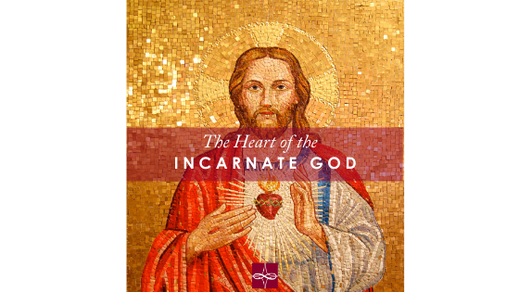
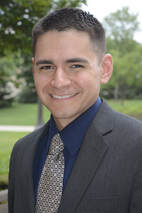


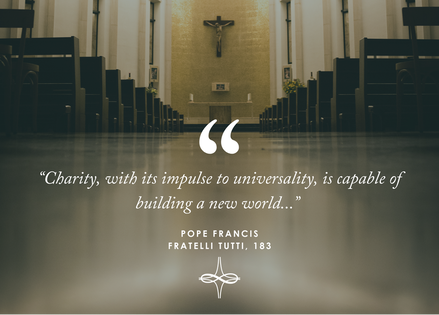
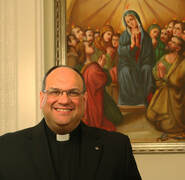
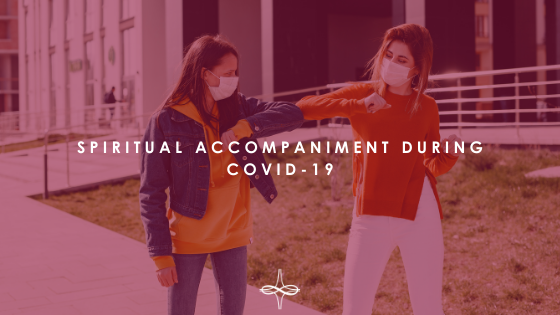
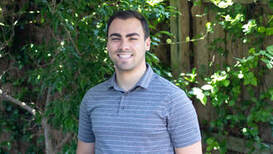
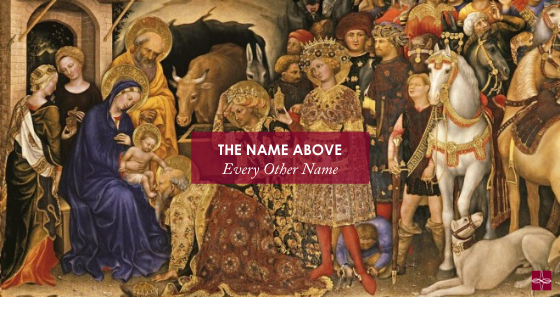

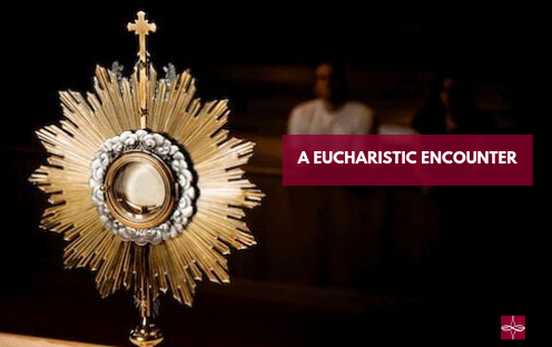

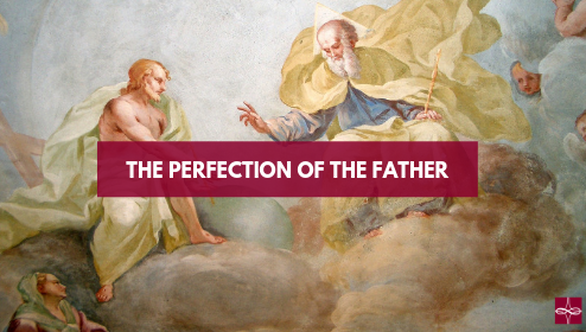

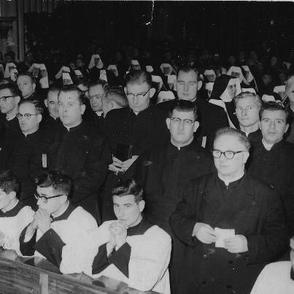
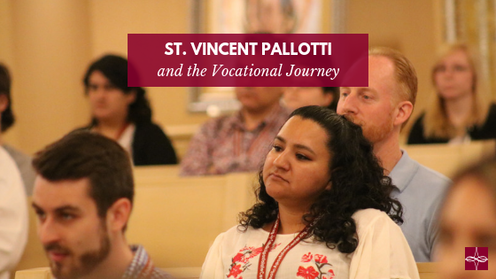

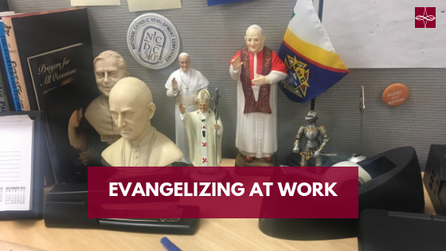

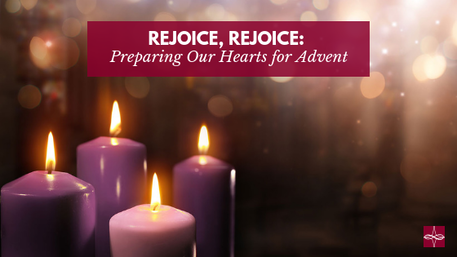



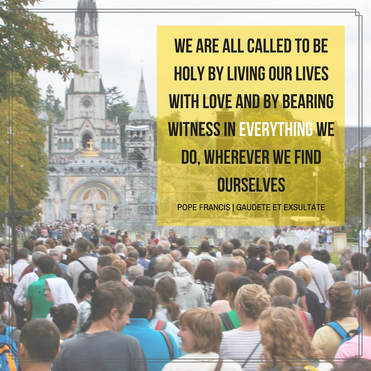
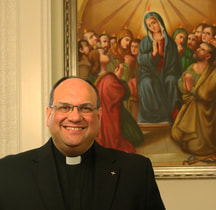
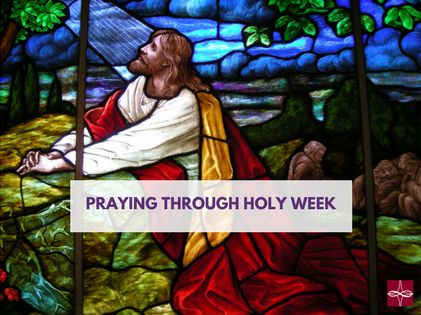

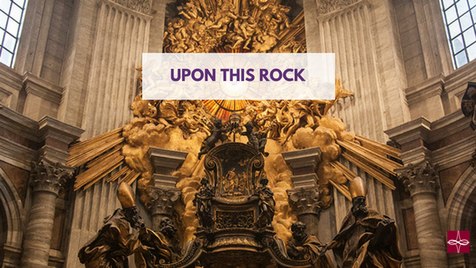

 RSS Feed
RSS Feed